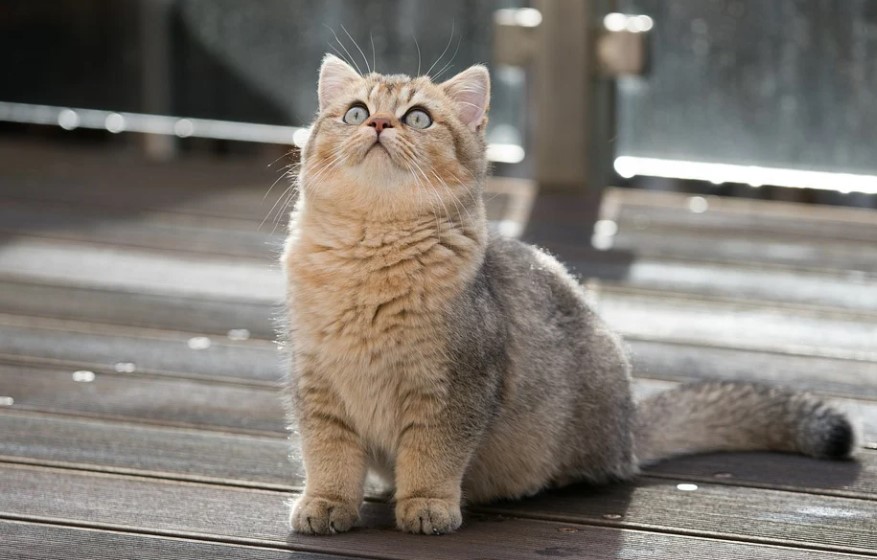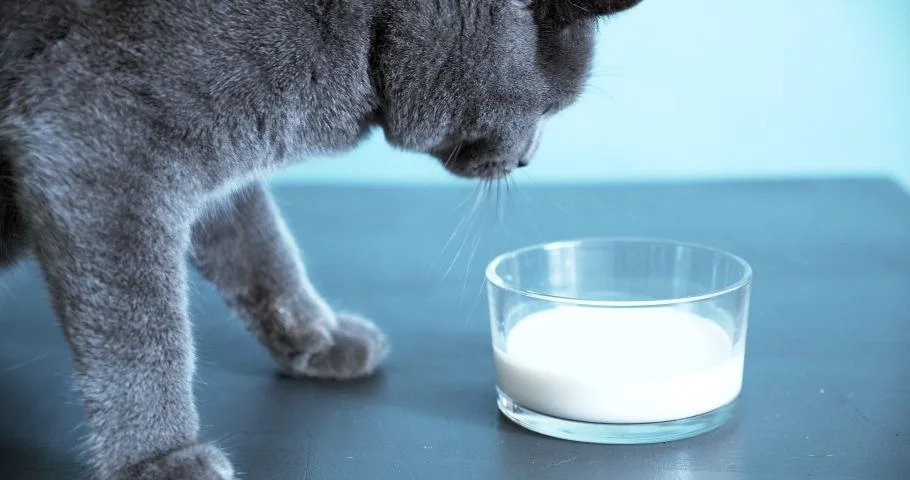Do you give your cat milk to drink? You may have heard that cats are lactose intolerant and shouldn’t drink milk, but is that actually true? In this blog post, we’ll take a look at whether British Shorthair cats can drink milk and whether there are any potential health risks. We’ll also provide some tips on how to introduce milk into your cat’s diet safely.
Can British Shorthairs Drink Milk?
British Shorthairs like a lot of cats are lactose intolerant. This means they lack the enzymes to digest lactose, the sugar found in milk. So it’s best to avoid giving milk to your British Shorthair. But it doesn’t mean they can’t drink milk outright, read on to find out more.
Why Are Cats Lactose Intolerant
Cats have a high level of lactase, the enzyme that breaks down lactose.
However, as they age, their levels of lactase decline. This is why most cats are lactose intolerant – because they can’t digest the sugar in milk properly.
When cats consume large amounts of lactose, they can suffer from diarrhea and other digestive problems.
So Can British Shorthairs Drink Milk?
Although British Shorthairs are lactose intolerant, this doesn’t mean they can’t drink milk at all.
You can slowly introduce small amounts of milk into their diet to see how they react. Start with a few drops and gradually increase the amount if there are no adverse effects.
If your cat does experience any digestive problems such as diarrhea stop giving them milk.
Raw milk is easier for cats to digest than pasteurized milk as it contains more enzymes.
You can also give your cat lactose-free milk, which is specially formulated to be easier to digest.
The Nutritional Benefits Of Milk For Cats
Milk is a good source of protein and calcium, which are both essential nutrients for cats.
Milk also contains vitamin A and B12, both of which are important for maintaining your cat’s health.
So if you’re looking for a way to give your cat some extra nutrients, milk is a good option.
Just make sure you only give them small amounts and monitor their reaction closely.
Is It Ok For British Shorthair Kittens To Drink Milk?
It’s best not to give a British Shorthair kitten milk. Due to the fact that milk could give your cat diarrhea, it’s best to not give it to a kitten.
There’s such thing as kitten milk formula that you can give your British Shorthair kitten.
It provides them with all the nutritional benefits of milk without lactose.

What’s The Best Food For A British Shorthair?
Your Puss and Boots can drink milk on occasion as long as it’s a part of a healthy balanced diet with all the best foods.
After all, British Shorthair cats are obligate carnivores, which means they require a diet that is high in protein.
A good quality wet food will provide your British Shorthair with the protein they need as well as other essential nutrients.
Dry food is not as nutritionally complete as wet food, but it is more affordable and easy to store.
If you choose to feed your British Shorthair dry food, make sure it is a high-quality brand that contains all the nutrients they need.
You should also supplement your British Shorthair’s diet with occasional treats of chicken, fish, or liver.
These are all good sources of protein and will help keep your cat healthy and happy.
If you want to learn more about this topic, check out our in-depth article on the foods that a British Shorthair should eat.
Milk Alternatives For A British Shorthair Cat – Other Great Treats
There are a number of good alternatives to milk for cats. Some of the best include:
- Canned tuna or salmon – Both tuna and salmon are good sources of protein and omega-3 fatty acids, which are essential for cats.
- Chicken – Chicken is a good source of protein and other essential nutrients, such as vitamin A and B12.
- Yogurt – Although it’s also a dairy product, yogurt is a good source of calcium and probiotics, which are beneficial for cats’ digestive health.
- Catnip – Catnip is a herb that has a stimulant effect on cats. It’s a safe and natural way to keep your cat calm and relaxed.
British Shorthair Sensitive Stomach
One common reason that cats can have a sensitive stomach is that they are lactose intolerant.
This means that they cannot properly digest milk and other dairy products.
To fix this, you can try giving your cat special lactose-free milk or feeding them food that is designed for cats with sensitive stomachs.
If your cat is having trouble keeping down food or water, it is important to take them to the vet right away.
There are many different conditions that can cause a sensitive stomach in cats, so it is important to get a diagnosis from a professional.
With the right treatment, your cat will be able to feel better and live a happy and healthy life.
British Shorthair Diarrhea
One of the most common health problems that British Shorthairs including all cats face is diarrhea.
It can be caused by a variety of factors, such as eating spoiled food, drinking contaminated water, or being infected with a virus or parasite.
If your cat keeps getting diarrhea, there are a few things you can do to help him recover:
- Make sure he drinks plenty of clean water.
- Reducing fiber in the diet may help.
- Probiotic supplements can help a cat’s digestive enzymes return to normal especially if they are experiencing a long bout of diarrhea.
- Take him to the vet if diarrhea doesn’t improve after a few days.
As for milk, it’s generally not a good idea to give it to cats. Milk is difficult for them to digest and can cause stomach upsets. If your cat is thirsty, stick to giving him clean water.
Conclusion
For those of you who are wondering, British Shorthair cats can drink milk. But it’s not always a good idea for them to do so because the lactose in dairy products is difficult for their stomachs to digest and may make your cat sick from all the extra gas they might have.
If your cat is thirsty and needs hydration, stick with giving him clean water instead. That said, if you’re looking for an occasional treat that won’t hurt kitty too much, lactose-free milk is a better alternative.
Also don’t forget about the other yummy treats such as tuna, salmon, and chicken.
In general, these treats should only account for about 5 to 10% of a day’s calorie intake at most – any more than that and your kitty will likely become overweight.
And overweight cats are prone to even more health problems than their slimmer counterparts.
So please be mindful of how much you’re feeding your furry friend!
Elliot is the owner and lead writer at Lais Lairs. He is the proud owner of a Maine Coon/Siberian Mix cat named Lai. His oldest cat lived to be 18 years old so he’s learned a thing or two about keeping pets. When he’s not writing you can find him playing video games or playing fetch with Lai.
